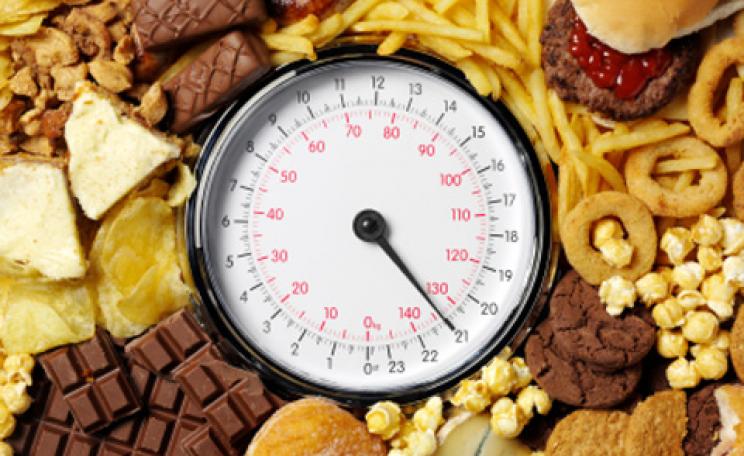Despite a growing organic food industry and the popularity of celebrity chefs, the UK's appetite for processed food is on the increase. Last year, the market for ready meals, pies and pasties was worth some £3.3 billion, a 12 per cent increase since 2005.
A study by Mintel suggested that 1.8 million people eat a microwave ready meal every single day, and that last year one in four people ate a Christmas dinner that was made entirely from pre-prepared food.
The industry is showing no sign of letting up, with a stream of new products that seem to be less about fresh, nutritious meals and more about convenience: a packaged sandwich that last for 14 days, an 'ambient' ready meal that requires no refrigeration but lasts for a year, cheese with a shelf life of three years.
If ever there was a clue that our relationship with food has gone awry, it must lie with our tinkering with the humble sandwich. With over eleven billion eaten every year, it's hard to imagine the basic format needs improving upon. Yet food wholesaler Booker spent a year researching ways to make their meat and two bread snack stay 'fresh' for two weeks, and in 2010 American firm Mark One Foods released the Candwich, a peanut butter and jam sandwich in a can with a shelf life of 12 months and an ingredient list of over 40 different items.
Health impacts
Health advice coming from the government and NHS is clear. Diets rich in salt, sugar and fat are linked to obesity and chronic diseases such as heart disease and diabetes. According to the World Health Organisation, these chronic diseases are responsible for 60 per cent of all deaths worldwide.
Amy Anslow is from hiSbe, an organisation campaigning for a more healthy and sustainable food industry. She says there are no studies directly connecting processed food with poor health or environmental degradation. This isn't because those links aren't there, but much like the difficulties in linking specific weather events to global climate change, it is very hard to draw a line between, say, eating an oven pizza and a specific health impact.
She says, 'When health advisers talk about high salt, high sugar and high fat diets what they are really talking about is a processed food diet. The information isn't necessarily out there in the kind of black and white that would be useful but you can join the dots. Environmentally it's there too, it's about the supply chain. Mass produced foods need mass produced meat and dairy and sugar, all of which has been farmed intensively, the impact of which is well known.'
Duncan Williamson is a programme manager for the sustainable consumption team at WWF. He agrees, saying: 'There hasn't been massive peer reviewed studies which compare processed food to ill health or environmental degradation on a wide scale. What there is is a direct correlation between trade patterns and diets, food consumption and dietary health and environmental impact. It's still in its infancy but there's enough circumstantial evidence to say yes there is a connection.'
Waste conundrum
However, a blanket ban on processed foods is no realistic answer and the debate is riddled with tensions between those with differing ideas on what health and sustainability actually means. For a person working in health care focusing on fresh and seasonal food may seem like the obvious answer, but for someone concentrating on waste reduction some kinds of processing are eminently beneficial.
The 14 day sandwich, for example, allows smaller, independent shops to stock fresh food more easily than if they had to renew their stocks every day and risk throwing out unsold goods. Canning, pickling and preserving are all excellent ways of holding over bumper crops for later in the year.
Williamson says: 'Considering 30 per cent of all food grown is thrown away and then consumers discard another 30 – 40 per cent it is something that has to be addressed. Processed food does tackle that issue.'
But the real issue is not with canned foods or pickles, but food produced in a highly industrialised and overly processed way that contains ingredients that perhaps wouldn't have been recognised twenty years ago. Even the word 'foodstuff' has changed over the years, once referring to any core ingredient used in food preparation, it can now mean something that is edible but, by strict definition, isn't really food.
Cutting costs
One such example is cheese analogue, a fake cheese product used to bulk out packaged pizza or pasta dishes. Made from vegetable oil and milk by-product it has minimal nutritional value, isn't a suitable alternative for those with a lactose intolerance or vegan diet, and with rainforest depleting palm oil often featuring in the ingredients, has no environmental advantages over the real thing. The only purpose of cheese analogue, then, is to reduce the cost of manufacture, regardless of a loss of quality.
Ruth Anslow used to work as a negotiator with large supermarkets before setting up hiSbe with her sister, Amy. She describes one meeting in which a buyer boasted he saved his company millions by forcing a supplier to remove the quality cuts of chicken from economy pies and replace them with much lower grade meat. 'The price to consumers didn't change, but idea was that they could get away with the cheapest rubbish because it's only people on low incomes eating it. They will always argue they are making food cheaper for those people but they are creating a standard of nutrition that is just not right. Making everything as cheap as possible has knock on effects for the environment and health, which is more expensive in the long run.'
Williamson is less sceptical, saying the food industry is beginning to take notice, with conversations between those campaigning for a healthier, more sustainable food systems and those who produce our food. 'Reformulation' of ready meals such as reducing the salt and trans fat content is already under way. Bistro Express, manufacturers of the ambient ready meal, say there are absolutely no additives or preservatives in their food and the long life is achieved simply by using a sealed environment, not dissimilar to canning, alongside gentle pasteurisation.
Williamson adds: 'They [the food industry] just say they are responding to consumer demand. It's a difficult position to be in at the moment. They're on the defensive and we're all sitting there knowing something is wrong and not knowing what to do about it.'
Anslow, however, is not convinced. 'When you look at the back of a packet and it looks like a chemistry lesson rather than a food cupboard then that's a real worry. In a lot of cases we presume things are safe and they wouldn't use anything harmful but the reality is when you start scratching the surface, there isn't enough regulation or monitoring of what's going into the food. But that's where we're heading, towards these products that are less and less about actual food.'
| READ MORE... | |
 |
INVESTIGATION Sustainable food production and healthy eating strategies under threat The Sustainable Development Commission has been axed, the Food Standards Agency has had its powers stripped and DEFRA appears to be stalling. Where then does this leave planning for a national sustainable food strategy - and healthy eating plan - asks Nick Hughes? |
 |
GREEN LIVING Behind the Brand: McDonald’s In the first of a major new series following on from the ground breaking Behind the Label, Peter Salisbury takes a look at one of the biggest brands in the world – McDonald’s – and asks: has the burger giant done enough to clean-up its act? |
 |
COMMENT Special report What's really in your cuppa? The British cuppa is an institution. But how many of us have actually wondered what goes into our favourite drink, or where the principal ingredients come from? The Ecologist investigates |
 |
INVESTIGATION How long until health foods become illegal? A huge number of UK citizens take food supplements or buy health food products, yet new legislation threatens to either remove these items from our shelves, restrict their dosages or ban them from making any health claims |
 |
GREEN LIVING Behind the Label: tomato ketchup It's the condiment of choice for a million fast-food outlets and a staple sauce in homes around the world, but there's more to tomato ketchup than meets the eye, says Pat Thomas |






